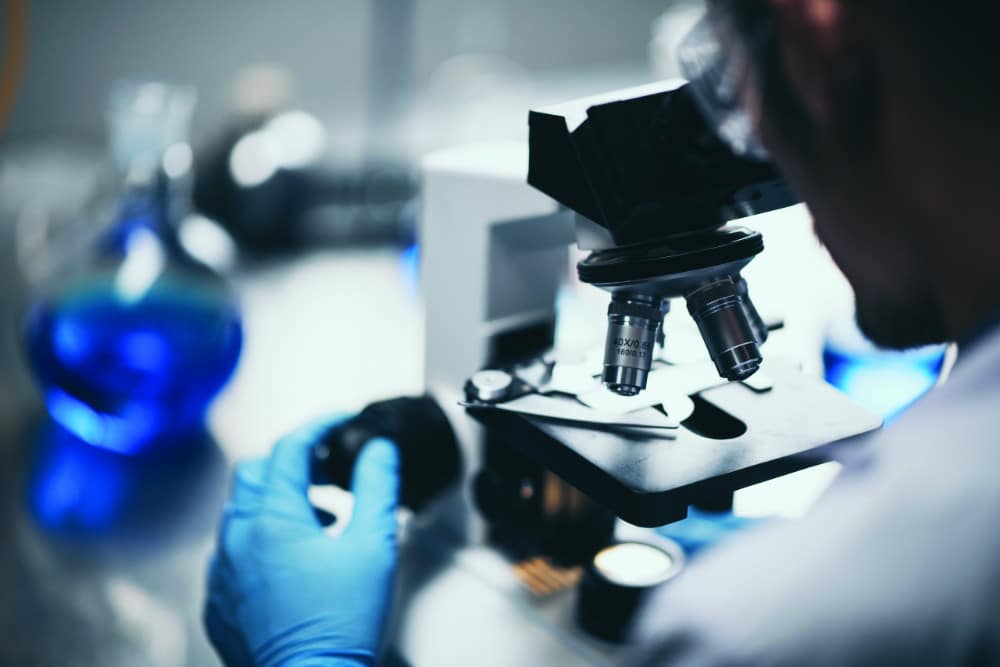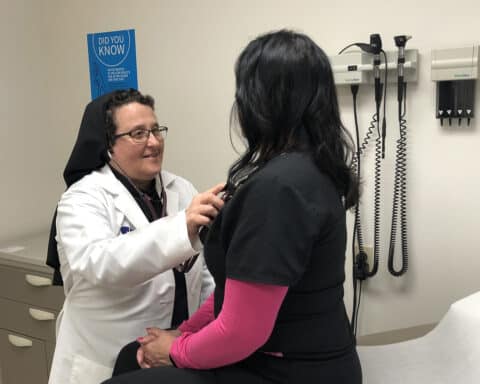Researchers have created the world’s first “synthetic” embryos with brains and beating hearts using a process that coaxes stem cells to self-assemble into an embryo-like structure. This study, published in the journal Cell, was conducted with mice, and the same group of scientists is voicing plans for human trials.
While no one has crossed the line into creating synthetic human embryos just yet, the research on using this process to create human “models” at earlier stages of life has. In these studies, scientists create “blastoids,” their term for synthetically developed blastocysts. These life forms are distinct from “natural” blastocysts because they lack similar capabilities, researchers argue. They claim that human blastoids and synthetic embryos provide ethical alternatives to other hotly debated forms of embryonic research because they are not “functionally similar” — yet.
As Catholics, how do we respond to research like this faithfully? If we are too rigid, we run the risk of limiting groundbreaking research that has the potential to heal and even save lives; too lax and we run the risk of accepting grave violations of human dignity. It is imperative that we understand and articulate the ethical violations at stake, if any, lest our cries on behalf of human dignity be routinely dismissed.
In this case, so-called “blastoids” are not artificial “models” as the naming conventions developed by the scientists suggest; these are living organisms comprised of cells with human DNA. What protections do they merit? While Australia has ruled that blastoids and blastocysts are morally equivalent, similar legislation doesn’t exist in the United States. It is hard to find consensus about how we ought to treat something so novel.
Still, if researchers are successful, these blastoids will soon develop into synthetic embryos. With the International Society for Stem Cell Research (ISSCR) lifting the 14-day growth limit on embryonic research and advances in the mechanical uterus, it is only a matter of time before laboratory-grown human beings are a possibility — and that is something we should be ready to weigh in on.
Threats new and ongoing
Because we have lived with the systemic injustice of abortion for so long, we have become desensitized to the violent way in which nascent life is abused and discarded in our country.
We see this in the dozens of articles fretting over the new “threat to IVF” with the fall of Roe v. Wade. Worry over the “danger” to this noncorporeal medical procedure when there are more than a million “leftover” embryos, souls suspended between life and death, and untold numbers of genetically “faulty” embryos systematically screened and discarded shows us just how warped our sense of what needs protecting has become.
And those are just the violations committed in service of creating “wanted” children. Medical institutions and our own doctors play with definitions to obscure the abortive power of contraceptives, ensuring that anything slips past their barriers to life are eliminated. In the realm of scientific research, the situation is even darker. The industry has a lengthy history of using aborted fetal tissue to develop vaccines (tissue that, in order to be useful, must be taken from the fetus while it is still alive). Children of God for Life, an organization that campaigns for ethical biomedical research, offers this chart showing ethical alternatives for parents who wish to avoid using abortion-tainted vaccines to protect their children. Its usefulness is limited, however, because for the most part, parents are not in a position to request a particular brand of vaccinations. Unlike medication distributed at a pharmacy where there might be many alternative drugs, doctor’s offices usually only carry one brand of each vaccine. In some cases, such as the MMR, chickenpox and COVID-19 vaccines, no ethical alternative exists.
The Church offers guidance to help the faithful navigate the murky waters of receiving abortion-tainted vaccines when no alternatives exist, with the condition that we protest and make the demand for ethical alternatives known. In the absence of strong advocacy in this area, our complacency and acceptance of these vaccines contributes to the perpetuation of injustice.
We have permitted these atrocities for far too long, and if we continue to avail ourselves of these treatments without serious protest, without boycotts, without any kind of substantive pushback, the human rights violations will continue. Not only will they continue, but our dilemma will expand, as embryonic and fetal tissue research is already expanding beyond vaccines and into other kinds of treatments. Embryonic stem cells are currently being used to find treatments for macular degeneration, spinal cord injuries and diabetes, among other things. The longer we allow this kind of experimentation to continue, and the further it becomes entrenched in the landscape of medical research, the more likely it is that we will find ourselves without ethical alternatives for treatment, as has become the case with many of our state-required vaccinations.
There is hope. Researchers just celebrated the live births of three babies who were treated in utero for spina bifida using a type of regenerative medicine derived from adult stem cells, or induced pluripotent stem cells (IPSCs) — an ethical alternative to those stem cells that entail the destruction of an embryo to obtain.
And then we come to the truly experimental, the stuff we once thought of as science fiction. This is the realm of blastoids, human-animal chimeras, CRISPR gene editing and cloning. As I argue in Chapter 10 of “Reclaiming Motherhood from a Culture Gone Mad” (OSV, $18.95), less we as a human community lay the groundwork spelling out what types of research are ethical to pursue and which are simply going too far, we will fulfill C.S. Lewis’ vision in “The Abolition of Man”: “What we call Man’s power over Nature [will turn out] to be a power exercised by some men over other men with Nature as its instrument.”
How Catholics can join the fight
Of course, much remains to be done in the fight against abortion and in support of pregnant mothers and their families in a post-Roe world. While the advances achieved through the fall of Roe v. Wade are undeniable, victory on that front is far from certain.
As we make further advances in the pro-life arena, it is crucial that we take up arms on the front of embryonic and fetal tissue research before these practices become embedded pillars of our society — as abortion was for so long (and remains so, in much of the country). We need to equip ourselves to see through rhetoric of terms like “blastoids” that attempt to obscure the truth of what is being done.
We must join in prayer, fasting and the Rosary. We can support organizations like Children of God for Life, the American Association of Pro-Life ObGYNs and Gynecologists and the National Catholic Bioethics Center (NCBC). We can and must advocate for legislation against embryonic and fetal tissue research. It is vital to stay updated and informed on these issues through resources such as BioEdge, the NCBC and “Brave New Us,” my newsletter and podcast at FaithandBioethics.com.
Ultimately, we need to refuse treatments developed via the mutilation and death of nascent human life and demand alternatives. We need to proclaim the joy of the Gospel and affirm the truths that suffering is not our worst enemy, and no “progress” is worth the sacrifice of our fellow human beings to achieve it.
Samantha Stephenson is the author of “Reclaiming Motherhood from a Culture Gone Mad” (OSV, $18.95).





